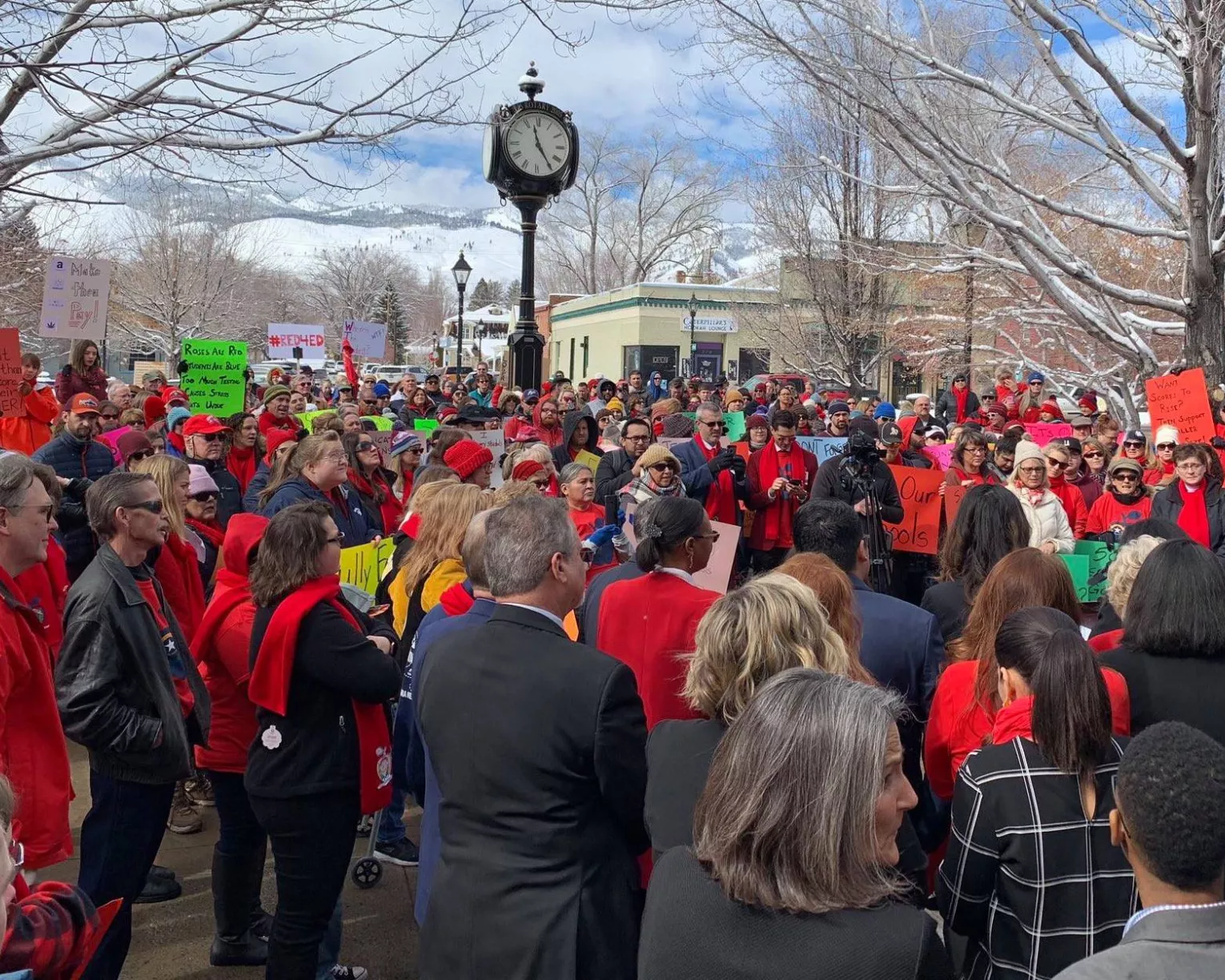On Monday, 40 educators from across the state convened in Carson City for our educator lobby day. Thank you to all of you who sat down and listened to educators this week. One of the concerns raised is the impact of language included in SB543 last session, the new school funding formula, which raises the amount of ending fund balance walled off from collective bargaining to 16.6% of district operating budgets. Unless amended, this provision is set to go into effect on July 1st, and would be one of the biggest antiunion shifts of the collective bargaining process in decades.
For a little bit of history, back in the late 60’s teacher strikes and walkouts became increasingly common, both in Clark and Washoe. In response to this and a movement across the country, Republican Senator Carl Dodge brought forward Nevada’s public sector collective bargaining process, in NRS 288. This provided public employers and employees a process for discussion and resolution of differences regarding wages, hours, and conditions of employment while ensuring that services to the public would continue without interruption.
The collective bargaining process is designed to push parties to reach agreement whenever possible. This is accomplished through a series of proposals and counter-proposals, where parties move towards agreement. It also includes binding arbitration with a “last-best-offer total package.” If parties cannot reach agreement either side can declare impasse. Under this method, parties present their proposals to an arbitrator who accepts either the association’s position or the district’s proposal and both parties are bound to the decision. This process also requires parties to determine the district’s ability to pay for the items before the arbitrator. This is why the issue of ending fund balance is so important.
In most negotiations, ending fund balance is the main source of funds identified to cover proposals with a financial cost proposed by employee associations. This includes wages and benefits like healthcare and retirement but also includes many proposals related to workplace safety. If the 16.6% ending fund balance language goes unchanged during this legislative session, it will drastically slant bargaining in favor of employers, making it nearly impossible for employees to win even the most modest proposals through the collective bargaining process. This amounts to a giant step backward for labor and jeopardizes labor peace Nevada has enjoyed for the past 50 years.
Learn More
What's On Your Mind?





